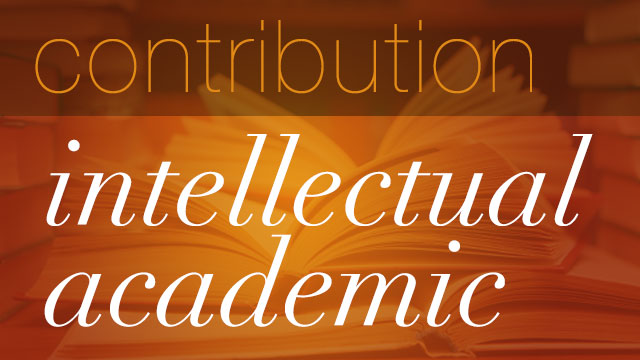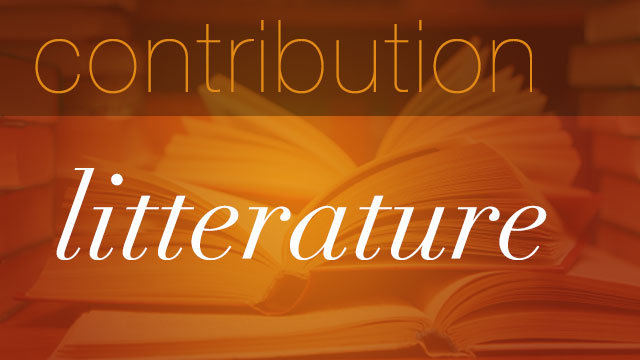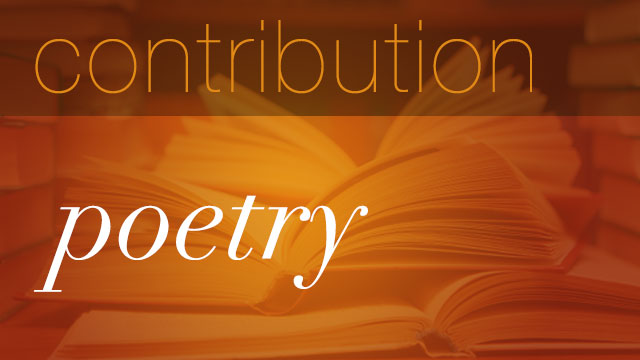“All opinions are that of the author and not necessarily those of the website that it is published under.”
Even today as we wade our way through the second decade of the twenty first century, there is still much we can learn from the staggering account of Abū Hamid al-Ghazali’s life (1056-1111). Unfortunately, those illuminating moments that might be of use to us seem, paradoxically enough, to be sometimes eclipsed by the deep and wide scholarship about his life and thought, but also by the dense clouds of the ideologized philosophical battles which invoke his name every now and then.
At an age when our minds are threatened by standardization and by flattened modes of thinking- critics like Adorno and Horkheimer did long ago set off alarm bells- al-Ghazali’s intellectual life might still be seen as an advanced model of the quest for autonomy in its Kantian sense. When it comes to critical thinking, the battle cry of the pundits of education in the 21 century, he is surely one of its undisputed champions. Since his childhood, we are told in his semi-autobiography Deliverance from Error, al-Ghazali had grown inimical to the commonplace and the conventional. With an inherently innate “thirst for grasping the real meaning of things”, al-Ghazali never ceded to a belief or practice unless it stood the test of epistemological certainty (Deliverance from Error, 3). For al-Ghazali, the path to truth necessarily passes by doubt, for “who does not doubt fails to inquire. Who does not inquire fails to gain insight. Without insight, you remain blind and perplexed” (The Scale of Action, 40). It is more or less the same lesson Socrates before him and the Enlightenment figures such as Kant and Emerson after him were keen to deliver: sapere aude!
Although we do not have to take it as far as al-Ghazali and Descartes did when they doubted not only their senses but also their reasoning faculties, their self-scrutiny of the taken-for-granted beliefs and practices should be insightful to us. A skeptical frame of mind is not always coterminous with wholesale rejection of tradition as we learn from al-Ghazali himself. What it should lead to, rather, is the conscious revaluation of one’s sources of knowledge, and the audacity to insulate oneself from conformity and the “slavish aping of parents and teachers” (Deliverance, 3). An inherited belief in tradition does not come anywhere close to that which is re-thought and re-examined.
The other lesson to be learnt from al-Ghazali, in addition to his inherent hostility to “servile conformism” and his restlessness with unchecked “inherited beliefs”, is pedagogical. For him, critique is inextricably associated with an a priori deep knowledge of the thing which is to be approached critically. That was the stance the Proof of Islam took with regards to the main four intellectual strands with which he critically engaged in his time: theologians, philosophers, esoterists and sufis. His scathing critique of metaphysical Greek philosophy in The Incoherence of Philosophers, to take just one famous example, was preceded by a two-years intensive study of philosophy, an endeavor which culminated in his book The Intentions of Philosophers where he succinctly reported in an objective way the thought of Plato, Aristotle and other philosophers to prove that he is well-qualified to engage with their thoughts later on. Out of intellectual integrity, al-Ghazali would apply himself hard to interiorize the beliefs and views of the epistemological “other” so that he “would never take leave of an interiorist without wanting to learn about his interiorism, or of a literalist without wanting to know the substance of his literalism, or of a philosopher without seeking to become acquainted with the essence of his philosophy . . . ” (Deliverance, 2 ). The moral, or say academic, obligation to uphold judgment until one puts his feet in the shoes of the other is a frame of mind that almost becomes a rare commodity in our times.
Finally, for al-Ghazali, skepticism is never a gratuitous epistemological exercise; it is crucially instigated by a relentless quest for balance. In a modern world which is obsessively preoccupied by outward manifestations of success, we tend to lose the sense of what constitutes the essence of our humanity. To the detriment of our inner peace, the spiritual tendencies of our souls are mostly submerged by the material density of our clay-ness. Al-Ghazali’s career as a professor in the Nizāmiyya School in Baghdad, his subsequent isolation and intensive spiritual devotion in a farther Khanqah [Sufi monastery] in the outskirts of Damascus, and his later return to Nishapur were three significant signposts in the life of Abū Hamid al-Ghazali.
While a professor in the Nizāmiyya School, the “most prestigious and most challenging . . . teaching position in his day”, al-Ghazali had everything that counts to a successful career: prestige, fame and official endorsement (Griffel, 34). Nevertheless, he was aware at the same time that he was far from being free; for him, such success is blemished by an inflated self-esteem and an egoistic indulgence in seeing thousands of students, high-profile scholars amongst them, sitting at his feet and listening to his lectures. As we are enthralled and magnetized by our success, we might as well be unconsciously enslaved by our base desires and selfish tendencies!
Torn between his success on the one hand, and his conscientious scruples on the other, al-Ghazali eventually pulled himself together, left Baghdad, renounced fame, prestige and worldly luxury, and wandered as a sufi in the deserts of Syria and Palestine. After years of solitude, devotion and worship far away from the distractions of life, al-Ghazali returned to Nishapur and afterwards to his hometown Tus to preach, teach and benefit his community. Al-Ghazali’s spiritual experience was profoundly transformative: “when Abu Hamid entered Baghdad [in 1091] we estimated the value of his clothing and mount to be 500 dinars. After he turned ascetic, traveled, and returned to Baghdad [in 1097], we valued his clothing to be worth fifteen qirat” (Griffel, 34). His return was that of a saint; that of a soul which realized that “the happiness of the drop is to die in the river.” Material gain and worldly success are inherent to the calling of human beings in this life. Yet, the challenge is how, like al-Ghazali, St. Augustine and many others, to set the material within an overarching spiritual and moral framework; how to put material gain in one’s hand and never let it into one’s heart.
The life of al-Ghazali is there for those of us who look for balance and inner peace. First, methodical skepticism is not an epistemological luxury, especially when general frameworks of belief are involved. Second, human beings are ineluctably caught in the double-bind of the here-and-there, the inwardly and the outwardly, soul and reason, the transcendent and the immanent; breaking the binary would certainly tip the scales of one’s life. Third, moral development and psychological well-being depends on how far one goes in self-checking his drives, inclinations and intentions. For al-Ghazali, the alchemy of happiness is simple and clear: the closer you are from God [the Absolute in today’s academic jargon], the less enslaved, and therefore, the more autonomous you become.






C’est une immense joie de pouvoir lire ces belles contributions. Celle-ci est particulièrement intéressante. Merci à vous, Monsieur Ramadan et à vos lecteurs.
Merci Oum Sami pour vos gentils mots, et je vous remercie M. Ramadan pour cette plate-forme intellectuelle enrichissante.
Religion is not a science, yet in the English translation of the revival of the religious sciences by Imaam Al ghazzali we find very simple meanings and chemistry to find inner balance which make this literature a work about science of the soul. One of the most puzzling and most difficult illnesses of the human being is when the mind becomes disturbed. Imaam Al Ghazzali mentions this. In this essay when you mention about how Imaam Al Ghazzali went in search for the improvement of his own well being, it can only be that every human being should find out for himself or herself what to do. So logically in the case of someone who has a disturbed mind it may not be so puzzling after all, except for others who don’t accept you and judge you.
I am not sure Shireen of what you meant in the last two sentences “it can only be that every human being should find out for himself or herself what to do. So logically in the case of someone who has a disturbed mind it may not be so puzzling after all, except for others who don’t accept you and judge you”. Excuse me if I didn’t get you well here!
AOA-
I am currently taking a course in my program, Comparative and International perspectives in religious education. This week we came across an article by J. Mark Halstead , “An Islamic Concept of Education” in which he talked about how in traditional Islamic education, Philosphy and Education donot really merge. i will quote from his text : “Until the time of al-Ghazali (1058–1111), the debate was fairly evenly balanced
between the philosophers and rationalists on the one hand (who believed, among
other things, that rationality was separate from religion and indeed could be used to
provide objective, independent support for religion) and the more orthodox theologians
(commonly known as al-Ash’ariyya, who believed that rationality is valid only
within the boundaries defined by religion) on the other. Both groups supported the
study of natural laws and causality, but the former would see this as a domain of
study independent of religion, while for the latter its value lay solely in the insight
it provided into God’s creative power. With the advent of al-Ghazali, however, the
philosophical and rationalistic schools of thought lost ground. Al-Ghazali reasserted
the dominance of religion over reason and gave superior status to revelation as a
source of knowledge (Ashraf, 1985, pp. 27–32). In The incoherence of the philosophers
(al-Ghazali, 1963) he argued that it was impossible for the rational faculties to attain
to certainty without the help of revealed knowledge and spiritual understanding.
Al-Ghazali’s influence on all subsequent Muslim thinking (and hence thinking about In the case of ‘philosophy’, as we have seen, some Muslims took the foreign word
into the Arabic language and then struggled (ultimately unsuccessfully) to render the
alien concept compatible with Islamic teaching. In the case of ‘education’, on the
other hand, the problem is not that the word does not exist in Arabic, but that the
central meaning of the term in Arabic does not correspond very closely with the
central meaning of ‘education’ as expounded by liberal philosophers of education in
the west. As we shall see below, there are in fact three words in Arabic that are
normally translated as ‘education’; one emphasizing knowledge, one growth to
maturity and one the development of good manners. There is a significant area of
overlap between the three words, however, and at the heart of the Muslim concept
of education is the aim of producing good Muslims with an understanding of Islamic
rules of behaviour and a strong knowledge of and commitment to the faith.
However, the Arabic language does not allow for any of the distinctions between
education, schooling, teaching, training, instruction and upbringing that have been
made much of by western philosophers of education working in the analytical
tradition, for the words for ‘education’ in Arabic carry all of these meanings.
Independence of thought and personal autonomy do not enter into the Muslim
thinking about education, which is more concerned with the progressive initiation of
pupils into the received truths of the faith.”
My question is :
Why do some western scholars see Ghazali so opposed to rational reasoing when his stance on “doubt” and “inquiry” is so clear. ” AL Ghazali and his successors systematically designed the scope and nature of Islamic education in later years. They divided knowledge as revealed knowledge (naqliyaa), an absolute truth that is transcendent and acquired knowledge (aqliyya) that include all sorts of scientific knowledge. They denied the use of reason to seek knowledge and had an argument that Muslims should follow religious law which has sufficient proof for believers to be content with. Such rigid classification of knowledge based on religious law and dogma gave all powers in hand of jurists and traditionalists who became final authority in matter of religious and worldly matters. Thus knowledge confined to religious knowledge and madrassa became source of religious education with hostile attitude towards research and scientific inquiry. In fact, in my opinion, this was the time when education became static and still traditionalists are promoting such hostile attitude towards notion of scientific knowledge”.
Just beautiful words from you Mr. Monir Birouk
God Bless You
Une leçon certaine pour T Ramadan, 10 ans de retraite spirituelle serait nécessaire